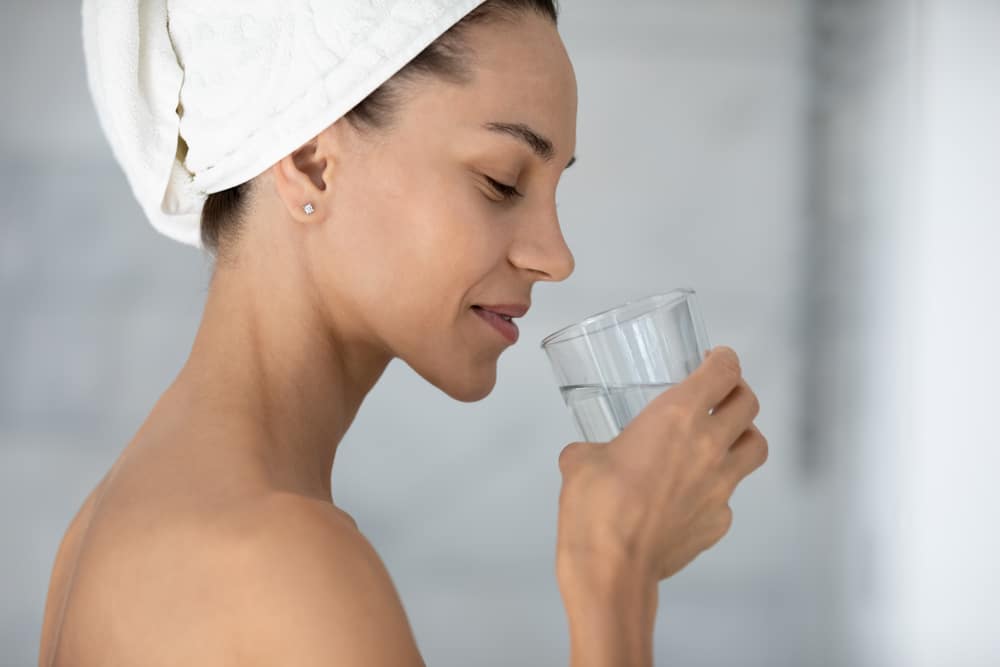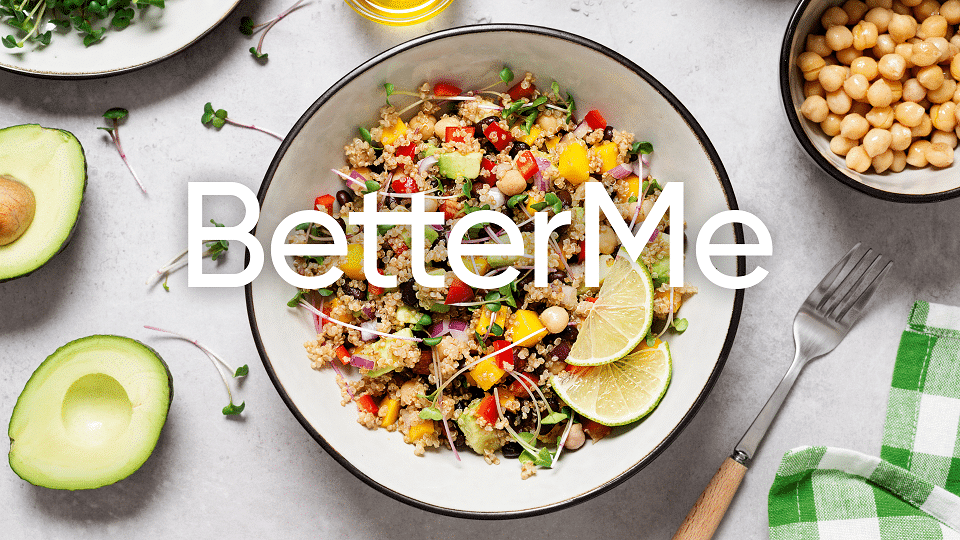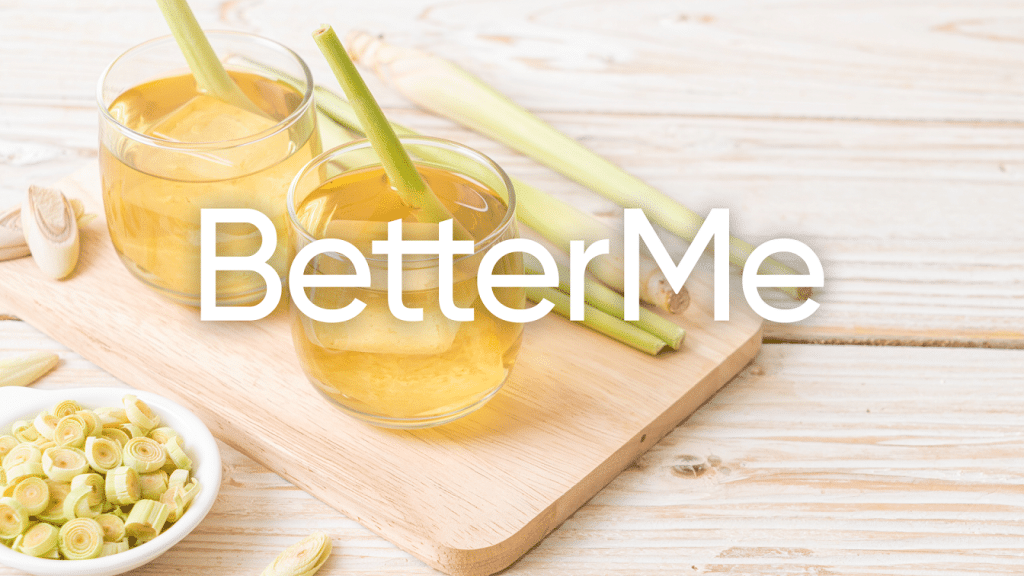Even though most people overlook the concept, healthy skin, the right diet, and a good lifestyle go hand in hand. So, the saying that you are what you eat potentially rings true regarding skin health. Although skincare products are abundant in the market, most dermatologists might suggest that getting enough nutrients in your diet can also help you nourish your skin from the inside out. First, however, you must eat the right foods that feed your skin vital nutrients to stay supple, smooth, hydrated, and soft. So, here are the best hydrating foods for skin health to add to your diet plan.
Get your personalized
meal plan!
What Are The Best Hydrating Foods For Skin?
If you have a skin condition, diet cannot substitute treatment by a dermatologist. However, it might be helpful as an adjunct to appropriate treatment and might help to maintain skin health for others. Below are the best foods for skin health most experts recommend, including the best foods for dry skin, oily, normal, or a combination of all:
Fatty Fish
There have been several debates about the impact of fatty foods on skin health. Some argue it can improve skin health, while others say it is not a good food option for skin issues.
Food experts are finally putting an end to this debate. They acknowledge that fats are different, which might explain the different results. For fish, the experts recognize that fats are healthy and can enhance skin health.
Cold-water fatty fish like salmon, sardines, and herring may improve skin health due to their abundance of omega-3 fatty acids (5). In addition, there is some evidence that these fatty acids might reduce the risk of non-melanoma skin cancer and reduce damage from ultraviolet (UV) radiation, which is linked to skin inflammation and immunosuppression (5).
Fatty fish is also rich in vitamin E, a vital nutrient for good skin. The vitamin protects the skin from harmful free radicals and inflammation (5).
Read More: Oregano Oil Benefits For Skin
Seeds And Nuts
Most seeds and nuts are rich in antioxidants like vitamin E and other crucial nutrients for skin health.
Here is an overview of such seeds and nuts:
- Sunflower Seeds. These are rich in vitamin E and zinc that help protect skin cells from damage.
- Flax Seeds. These seeds are rich in an omega-3 fatty acid called alpha-linolenic acid (ALA). A 2011 study conducted to determine the effect of flaxseed oil supplements among women with sensitive skin revealed improved skin health. The women reported reduced scaling, lessened skin roughness and sensitivity, and increased hydration resulting in smoother skin (4).
- Almonds. These nuts contain unsaturated fatty acids and vitamin E that are good for skin health.
- Walnuts. These nuts are rich in omega-3 and omega-6 fatty unsaturated fatty acids necessary for better skin health. The typical western diet includes too many omega-6 fatty acids and not enough omega-3s. Excessive omega-6 fats can cause inflammation and worsen inflammatory skin conditions like psoriasis and eczema (5).
Avocados
Avocados are packed with tons of nutrients like vitamin E and healthy fats that promote better skin health. These healthy fats promote better skin health by supporting a healthy skin membrane.
They are also rich in antioxidants that fight free radicals that can potentially cause skin cancer or damage and age the skin. Similarly, experts have acknowledged that avocados contain compounds like lutein and zeaxanthin that help protect the skin from dangerous UV rays and radiation damage (5).
Water
Water happens to be the most accessible drink yet the highly overlooked beverage for better skin health. Besides supporting several body functions, water also benefits the skin in several ways. For example, it promotes hydration, which helps protect the skin from cell damage caused by environmental factors.
Likewise, when you drink enough water, your skin cells absorb nutrients more easily and release toxins. So, you are urged to drink more water as it is one, if not the easiest, way to promote better skin health.
Whether you’re looking to simply pep up your fitness routine, jazz up your diet with mouth-watering low-calorie recipes or want to get your act together and significantly drop that number on your scale – BetterMe app has got you covered! Improve your body and revamp your life with us!
Green Tea
Green tea is a beverage that is mainly linked to weight loss. But besides promoting weight loss, this energizing low-calorie drink also contains compounds essential for healthy skin. Additionally, the tea has been shown to contain antioxidants called catechins that enhance blood flow to the skin.
As a result of the enhanced blood flow, skin cells receive fresh oxygen and nutrients to maintain their health (5). One study also found that drinking green tea for three months benefited the skin of participants in the following ways (5):
- Improve elasticity
- Improve skin density
- Reduce roughness
- Reduce scaling
- Increase hydration in the skin
- Protect the skin from harmful UV radiation
Soybeans
Soybeans have isoflavones compounds that are crucial in promoting better skin health, especially in women (5). For example, one review found that middle-aged women who consumed more of certain isoflavones found in soybeans tended to have fewer wrinkles and increased skin elasticity (5).
These compounds may have more significant benefits in menopausal women. When estrogen levels drop during menopause, the skin’s elasticity diminishes. So, consuming soybeans might help in reducing this effect (5).
Tomatoes
Tomatoes are among the foods with water that offer skin cancer prevention benefits. A study in mice revealed that daily tomato consumption decreased skin cancer and tumor development by 50% following UV light exposure (2). Although the research is yet to be conducted on human participants, health scholars anticipate the same effects.
Mangoes
Mangoes are skin-hydrating foods that may promote better skin health due to their rich antioxidants profile. According to Medical News Today, mangoes have antioxidant properties that might protect skin components like collagen from damage, thus, enhancing skin health (2).
Blueberries
The other hydrating foods for the skin are blueberries. They are rich in antioxidants, including anthocyanins, responsible for the fruits’ rich color. Besides supporting your immune system, these antioxidants also promote healthy skin by reducing skin damage from free radicals.
Blueberries are also packed with selenium, zinc, and vitamins E, C, A, and B (1). Most of these nutrients are believed to help reduce acne and inflammation and strengthen the capillaries underneath the skin that prevent spider veins.
Read More: Collagen Rich Foods For Vegetarians: The Ultimate Guide To Boosting Skin And Joint Health
Low Glycemic Index (GI) Foods
The glycemic index refers to a system used to indicate how fast or slow carbohydrate foods are broken down in your body into glucose. Dermatologists recommend a low GI diet that comprises pulses, beans, and whole grains (1).
They acknowledge that such foods gradually release sugar into the bloodstream and provide you with a steady supply of energy that increases satiety. Consequently, your craving for high GI carbs like sugary drinks and biscuits is diminished. In addition, these foods may affect the skin by increasing inflammation (1).
Foods To Avoid For A Better Skin
While at it, let us do a quick rundown of the foods to avoid due to their capability of damaging the skin.
They include (5):
-
Caffeine
Caffeine is a diuretic and stimulant. If you consume too much of it, you get rid of a significant amount of water and potentially dehydrate the skin. Remember we mentioned that hydrating is pivotal for healthy skin, so we have discussed the best hydrating foods for skin health.
-
Refined Or Processed Foods
Unfortunately, most of us love refined and processed foods over food groups such as whole grains, legumes, and vegetables. Processed or refined foods are linked to many health issues, including hastening the skin’s aging process (5).
If you struggle to even flirt with the idea of giving up your favorite foods or working out till your legs give way – BetterMe app is here to breathe a fresh perspective into the way you view the weight loss process! Check out the app and experience the fun side of fitness and dieting with BetterMe!
Bonus Tips For A Healthy Skin
Besides your diet, dermatologists have also revealed some tips on how to take care of your skin.
They include (3):
-
Protecting Yourself From The Sun
Although you need vitamin D, you also need to be very careful when stepping out in the sun. Be sure to use sunscreen, wear protective clothing like wide-brimmed hats, and avoid the sun between 10 a.m. and 4 p.m. This is because the sun’s rays are strongest during this time.
-
Quit Smoking
Smoking contributes to wrinkles and makes your skin look older (3). Smoking also damages elastin and collagen, depletes your skin of vital nutrients, and increases the risk of squamous cell skin cancer (3).
-
Manage Stress
Stress is inevitable, which is why you are advised to manage it using simple techniques like breathing and mindful practices. You can also talk to someone, set reasonable work deadlines, and establish a realistic work-life balance (3).
-
Get Enough Sleep
Yes, getting beauty sleep also improves your skin health. For one, Medical News Today reveals that it helps to banish the dark circles around your eyes. Similarly, enough sleep improves your skin tone and mood and is linked to reduced risk of diseases like obesity, diabetes, and immune deficiency (2).
The Bottom Line
Although most people rush to use skincare products, diet is also likely to benefit the skin. There are hydrating foods for skin health you can consume and enhance your skin elasticity, glow, and overall health.
These foods include avocados, fatty fish, blueberries, green tea, water, low GI foods, mangoes, tomatoes, seeds, and nuts. Besides your diet, remember to manage stress, get adequate sleep, quit smoking, and protect yourself from the sun. The simple techniques can have profound effects on your skin health.
DISCLAIMER:
This article is intended for general informational purposes only and does not serve to address individual circumstances. It is not a substitute for professional advice or help and should not be relied on for making any kind of decision-making. Any action taken as a direct or indirect result of the information in this article is entirely at your own risk and is your sole responsibility.
BetterMe, its content staff, and its medical advisors accept no responsibility for inaccuracies, errors, misstatements, inconsistencies, or omissions and specifically disclaim any liability, loss or risk, personal, professional or otherwise, which may be incurred as a consequence, directly or indirectly, of the use and/or application of any content.
You should always seek the advice of your physician or other qualified health provider with any questions you may have regarding a medical condition or your specific situation. Never disregard professional medical advice or delay seeking it because of BetterMe content. If you suspect or think you may have a medical emergency, call your doctor.
SOURCES:
- Eat your way to fabulous skin (2022, bbcgoodfood.com)
- Five life hacks for healthy skin (2017, medicalnewstoday.com)
- Skin care: 5 tips for healthy skin (2022, mayoclinic.org)
- Supplementation of flaxseed oil diminishes skin sensitivity and improves skin barrier function and condition (2011, pubmed.ncbi.nlm.nih.gov)
- What are some skin-friendly foods? (2018, medicalnewstoday.com)












